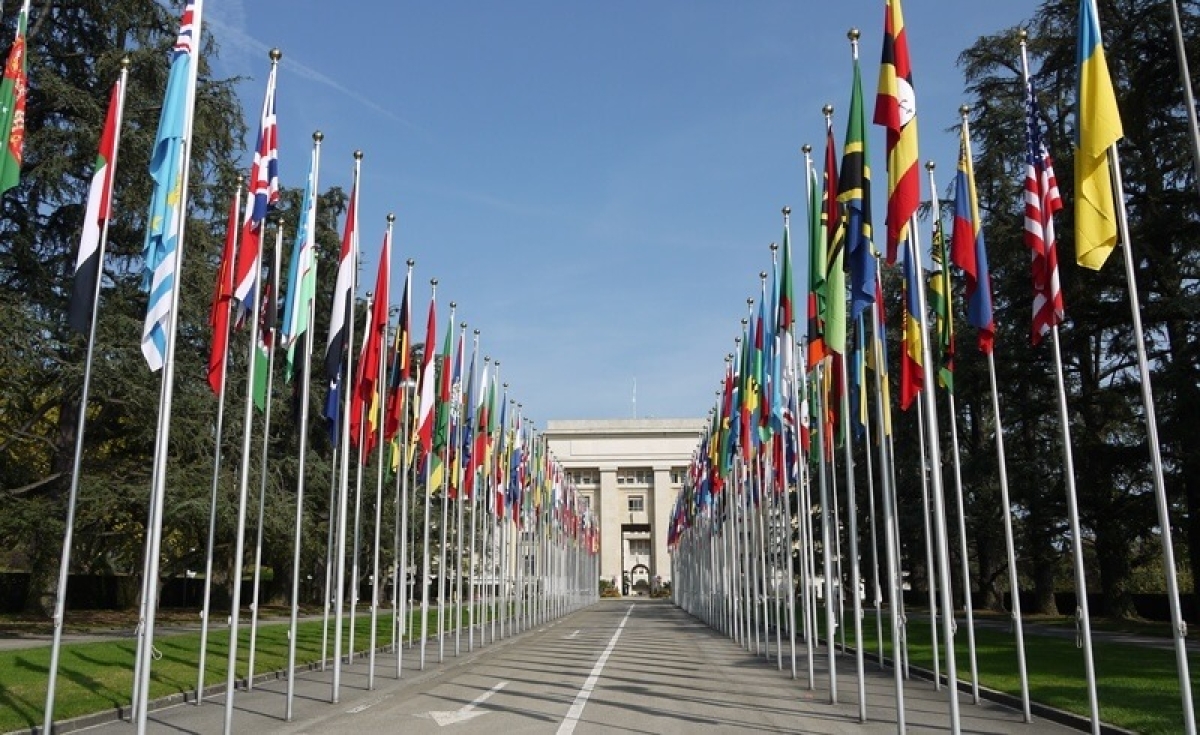91st Session of the CEDAW Committee Reviews Ongoing Violations of Afghan Women’s Rights

91st Session of the CEDAW Committee Reviews Ongoing Violations of Afghan Women’s Rights
Geneva – Tuesday, 24 June 2025: The UN Committee on the Elimination of Discrimination against Women (CEDAW) held its 91st session today at the United Nations Office in Geneva, focusing on the fourth periodic report on the status of women’s rights in Afghanistan. While the report was originally due to be submitted by the government of Afghanistan, the absence of a legitimate and representative government led the Afghanistan Political Mission in Geneva to prepare and facilitate the session. The report was successfully presented by prominent human rights defenders and civil society leaders, offering a comprehensive and evidence-based examination of the Taliban’s systematic policies against Afghan women and girls.
Ambassador Nasir Ahmad Andisha, Afghanistan’s Permanent Representative to the UN in Geneva, opened the session by reaffirming Afghanistan’s commitment to CEDAW since its accession in 2003. He stressed that the Taliban’s reimposition of restrictive policies has delivered a severe blow to women’s fundamental rights.
Former Member of Parliament Fawzia Koofi, as the keynote speaker, emphasized that since the Taliban’s return to power, women have been systematically excluded from all public, educational, political, and economic spheres—a blatant violation of Afghanistan’s obligations under the CEDAW Convention.
Ambassador Wahidullah Waissi, Afghanistan’s Ambassador to Australia, delivered a focused statement on the economic and social dimensions of Article 13. He warned that Afghan women are being systematically erased from national economic life. Citing recent UN reports, he noted that female participation in the workforce has dropped below 6%, with most women-led economic activity either halted, forced underground, or mediated through male intermediaries—deepening structural exclusion.
Other distinguished speakers included Dr. Sima Samar, Shukria Barakzai, Farukhlaqa Enchizadeh, Negara Mirdad, and Razqa Yaftali, who all offered in-depth perspectives on the deteriorating human rights situation of Afghan women from legal, political, social, and economic angles.
The session also featured powerful interventions—both in-person and virtual—from Afghan civil society activists and human rights defenders, who shared verified reports and lived testimonies that highlighted the severe and worsening conditions faced by women under Taliban rule.
In conclusion, speakers reiterated a collective call to member states to uphold their international obligations and to support the rights of Afghan women both inside Afghanistan and across the diaspora.

